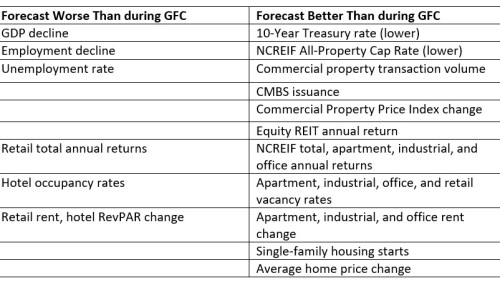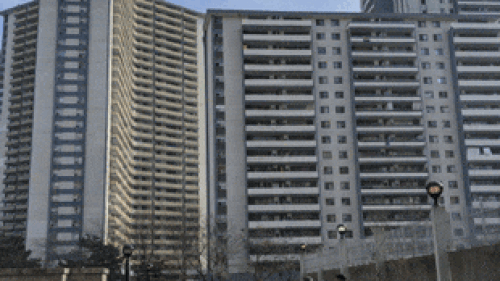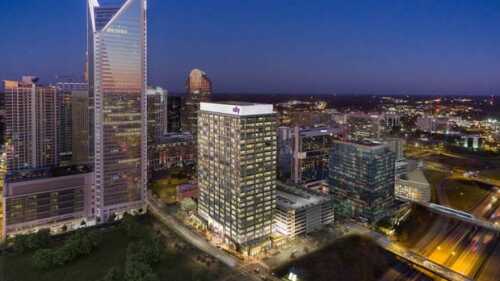<b>Equitable Development</b>
The latest “Real Estate Economic Forecast,” produced by the ULI Center for Capital Markets and Real Estate, points to a U.S. economy that has likely already hit bottom, with growth resuming in the second half of the year that will soften some of the blow. Panelists on a ULI webinar said that this outlook comes with crossed fingers due to uncertainty related to the path of COVID-19 and the time it takes to develop an effective vaccine.
According to survey data from the latest ULI Real Estate Economic Forecast, the current economic recession will be short-lived in the United States, with above-average gross domestic product growth returning in 2021 and 2022. Second, the impact on real estate market conditions and values will be relatively modest and much less severe than the impact experienced during the global financial crisis, with some exceptions by sector.
The ways in which people use and interact in commercial buildings—particularly office spaces—will likely be changed significantly due to the COVID-19 crisis, with building and workplace health being a top concern, according to two healthy-building experts featured on a ULI webinar.
Two ULI members, working with ULI Terwilliger Center staff, have written an essay on the developer’s role in cultivating inclusive, equitable mixed-income communities.
Panelists at the 2020 ULI Arizona Trends Day discussed how they are reducing the focus on abundant parking to provide more walkable open space which can be activated. One transit-oriented development in Tempe is billing itself as “car free” as it emphasizes bike lanes, walking, and access to light rail.
A retail developer and ULI longtime leader shares how his firm is approaching the current shutdown in the United States and beyond.
Communities around the world are racing to control the spread of the novel coronavirus and the disease that it causes, COVID-19. Increasingly, that means implementing aggressive social distancing measures, which can inhibit the spread of the virus and flatten the transmission curve. Given what is known about the virus so far, using building strategies to help slow the spread of the disease makes sense to help protect those who must work in an office or commercial setting and in multifamily settings.
Aging high-rise residential towers in the city of Toronto are home to nearly 13 percent of the current population, but are falling behind on maintenance. A ULI Advisory Services panel was invited to evaluate a range of solutions.
At a ULI Austin event, speakers said that government, nonprofit, and business initiatives are tackling Austin’s homelessness predicament by, among other things, proposing temporary structures known as Sprung shelters and seeking to convert motels into longer-term housing.
Developments showcased at the 2020 ULI Carolinas Meeting included transit-oriented affordable housing, gleaming new downtown office towers, an opportunity zone development for technology tenants, and a new recreation center for Clemson University students using mass timber.





